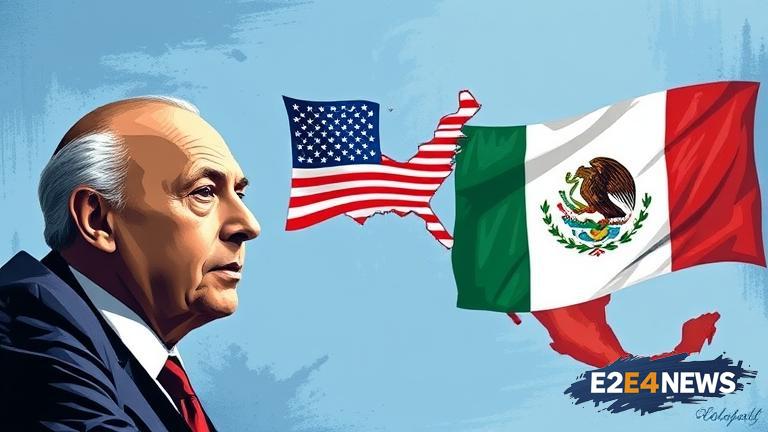The United States has imposed new tariffs on the European Union and Mexico, sparking concerns of a trade war. The tariffs, which range from 10% to 25%, will affect a wide range of goods, including steel, aluminum, and agricultural products. The move is seen as a response to the EU’s and Mexico’s retaliatory tariffs on US goods, which were imposed in response to the US’s initial tariffs on steel and aluminum. The trade tensions between the US and its allies have been escalating for months, with the US accusing the EU and Mexico of unfair trade practices. The EU and Mexico have denied these claims, arguing that the US is using tariffs as a means of protectionism. The new tariffs are expected to have a significant impact on the global economy, with many businesses and industries likely to be affected. The US Chamber of Commerce has warned that the tariffs could lead to higher prices for consumers and reduced economic growth. The EU and Mexico have vowed to retaliate against the new tariffs, which could lead to a further escalation of the trade war. The trade tensions have also sparked concerns about the impact on the global supply chain, with many companies relying on imports from the EU and Mexico. The US has also been criticized for its use of tariffs as a means of negotiating trade deals, with many arguing that this approach is unlikely to be effective. Despite the tensions, the US has said that it is still committed to negotiating a trade deal with the EU and Mexico. However, the EU and Mexico have said that they will not negotiate under threat of tariffs. The trade war has also sparked concerns about the impact on the US economy, with many farmers and businesses likely to be affected. The US has offered aid to farmers affected by the tariffs, but many have said that this will not be enough to offset the losses. The trade tensions have also sparked a wider debate about the use of tariffs as a means of trade policy, with many arguing that they are a blunt instrument that can have unintended consequences. The US has said that it will continue to use tariffs as a means of negotiating trade deals, but many have warned that this approach is unlikely to be effective in the long term. The trade war has also sparked concerns about the impact on the global economy, with many warning that it could lead to a recession. The IMF has warned that the trade war could reduce global economic growth by up to 0.5%, which could have a significant impact on many countries.
